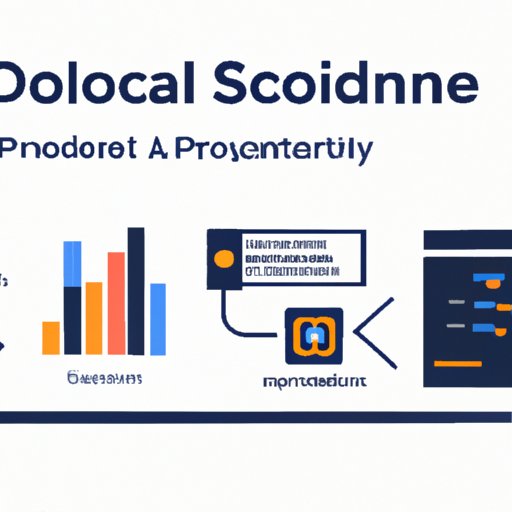Introduction
Data science is an exciting field that combines programming, mathematics, and communication skills to uncover valuable insights from data. It is an ever-evolving field with a wide range of job opportunities. If you are interested in transitioning to a career in data science, you might be wondering where to start. This article will provide guidance on how to make the transition from your current career to a successful career in data science.
Identifying Strengths and Weaknesses in Data Science
The first step in transitioning to a data science career is assessing your existing skillsets. Consider which areas of data science you already have experience in, and which areas you need to improve upon. You should also consider what kind of data science roles interest you most. Are you more interested in data engineering, machine learning, or business intelligence? Once you’ve identified your strengths and weaknesses, you can begin to develop a plan for improving your skillset.
Professional Development Courses
One way to improve your skillset is by taking professional development courses. These courses are usually offered online, and they cover a variety of topics related to data science. Many of these courses focus on programming languages such as Python and R, as well as databases and machine learning algorithms. Taking these courses will help you gain a better understanding of the fundamentals of data science. Additionally, many of these courses offer certifications that can be added to your resume to demonstrate your knowledge.

Networking with Other Data Scientists
Another important step in transitioning to a data science role is networking with other data scientists. You can find other data scientists through online forums, conferences, and meetups. Connecting with experienced professionals in the field can help you learn about new technologies, understand different approaches to problem solving, and stay up-to-date on industry trends. Networking can also open doors to job opportunities and internships.

Building a Portfolio of Data Science Projects
In order to stand out in the job market, it’s important to showcase your data science skills through projects. Creating a portfolio of data science projects is a great way to demonstrate your abilities and highlight your strengths. These projects can be anything from building predictive models to creating interactive visualizations. Make sure to keep your portfolio up-to-date with relevant projects, and include links to any code or data sets you use.
Looking for Internships and Entry-Level Positions in Data Science
Once you have built up your skills and created a portfolio of projects, you can start looking for internships and entry-level positions in data science. There are a number of websites dedicated to helping people find jobs in data science, such as Indeed, Glassdoor, and Kaggle. When applying for jobs, make sure to tailor your resume and cover letter to each position, highlighting your relevant experience and skills. Additionally, research the companies you are applying to and make sure to ask questions during interviews to demonstrate your enthusiasm for the role.
Conclusion
Transitioning to a career in data science can be a challenging process, but with the right preparation and resources, it can be an achievable goal. Assessing your existing skillsets, taking professional development courses, networking with other data scientists, creating a portfolio of data science projects, and looking for internships and entry-level positions are all important steps in making the transition. With dedication and hard work, you can transition to a successful career in data science.
(Note: Is this article not meeting your expectations? Do you have knowledge or insights to share? Unlock new opportunities and expand your reach by joining our authors team. Click Registration to join us and share your expertise with our readers.)
